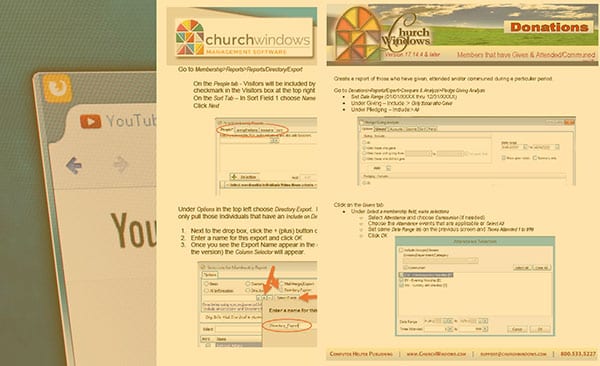The Rich Theology of Hymns
Before our daughter was born, my husband and I made a long list of “musts” and “nevers” like any ambitious parent. As you can imagine, most of those fell by the wayside in the days and months after she was born, but one tradition was born from that list that has turned into one of my favorite parenting victories. We vowed to teach our children classic hymns. We carefully picked out which song would be our daughter’s bedtime hymn and faithfully taught it to her as we sang it to her day after day. She’s three now and could sing you all of the words to some of our favorite hymns including “Come Thou Fount of Every Blessing,” “It Is Well With My Soul,” and “There Is a Fountain Filled With Blood.”
What we thought was simply an effort to keep our home free of bubbly children’s songs turned into one of the best decisions we made as young parents. We didn’t quite understand how moldable our daughter would be or how easily she would absorb the words she heard repeated day in and day out. We didn’t sit down and pore over well-thought-out lessons to teach her each word, we just sang her simple songs that were dear to our own hearts and the words rooted themselves deep in her little heart. As she’s gotten older, teaching her Scripture has taken more intentionality than just singing hymns at bedtime, but she still amazes us every day with how easily she soaks in every word. Children so easily remember the words to their favorite books, the lines to their favorite songs, and the phrases we repeat day in and day out. Why shouldn’t they also soak in the big theological words of Scripture just as easily?
Don’t Water It Down
It’s tempting to water down the language and truths we share with our children or to even wait until they are older to introduce big words of theology. But the reality is that even if they don’t fully understand now, they are capable of easily remembering the words they hear again and again, no matter how big they are. Our daughter memorizing hymns is such a perfect example of this. Does our three-year-old know what Ebenezer, estate, or ransom mean? No, of course not. But someday she will. And when she does, the words that have flowed through her little mind by means of hymns and Scripture memory will begin to make sense and will remind her of the rich truths of the gospel.
Whether you are teaching your child hymns, catechisms, or Scripture, don’t hold back out of fear that they won’t understand. Feed them the fullness of the gospel and the big words of theology. Help them memorize long passages of Scripture and verses with words like atonement, justification, and sanctification. Let them grow into understanding the big truths of Scripture by building a foundation that will shape and guide them as they learn and understand the big words and the big theology of the gospel.
Don’t Overcomplicate It
While this might all sound intimidating to the average mom or dad, teaching our children theology doesn’t need to be complicated. You don’t need a seminary degree or teaching credentials to teach your children about God’s word. You don’t need elaborate lesson plans complete with a snack, craft, and practical application. While all of those are great, you can easily weave theology into your day-to-day lives with a few simple adjustments. Let’s look at three simple and practical ways to start teaching your children theology today.
1. Memorize Scripture
The easiest way to begin teaching your children about theology is to simply memorize Scripture together. While there are endless amounts of beautiful Scripture memory cards that you can purchase online if you would like, all you really need is your Bible. Start simple—talk through a verse together at each meal and repeat it at every meal together until they have it memorized. Does your child struggle with fear? Memorize psalms about trusting in God. Is your child learning to pray on their own? Work through the Lord’s Prayer together. Memorize verses with big words and big truths about the gospel, even if they don’t understand now, because someday they will and those words will be hidden in their hearts. Whether it takes them a day or a week to memorize each line, keep on repeating and reviewing and you’ll be helping plant little seeds of truth deep in their hearts.
2. Listen to Good Music
Another simple way to introduce lessons in theology into your daily life is through the music you listen to. Whether you choose classic hymns or theologically sound children’s music, it’s no secret that lyrics easily stick with us long after we turn off the music. While even the best hymns will never replace Scripture, there are rich, gospel truths beautifully woven into the lyrics that foster meaningful conversations as our little ones grow to understand the words. I’ll never forget the day my husband started teaching our daughter the old hymn, “There Is a Fountain Filled With Blood.” I was minding my own business when she came running into the room and proudly announced to me, “There’s a fountain filled with blood, mama!” As you can imagine, I just about spit my coffee everywhere half in shock and half laughing. She has no idea how beautiful that truth is, but in time she will. Instead of playing that soundtrack for the seventeenth time, choose a playlist of songs filled with rich Scripture truth a few times a week. Some of our favorites are Getty Music, Chris Rice’s “Peace Like a River” album, both of J. J. Heller’s “I Dream of You,” and Ellie Holcomb’s “Sing: Creation Songs.”
3. Read Together
A final way to start talking about theology with your children is through the books you read together. We are so blessed to live in a time with so many different children’s resources full of gospel truth being produced each year. From board books to picture books to reference books, there are so many theologically sound resources available for all age ranges to start talking about theology with your children. It’s likely you already spend time reading with your children, so add a few new books that introduce big theological themes to your library, and begin discussing big truths with even your littlest loved ones.
If you’re anything like me, considering ways to teach your children theology is a reminder of your own need to learn more theology. Don’t be discouraged, friend. The reality is that you need theology as much as your children do, and teaching them teaches you. Don’t shy away from the big topics and words of theology, even if you don’t fully understand them. As your little one asks questions, find answers together. Memorize Scripture together, learn new hymns together, read new books together. Our job as parents is not to know everything, but to lead our children to Jesus as we follow closely after Him.
Jessica Robyn Provencher is co-author, with Devon Provencher, of God, Jesus, and The Gospel. This article first appeared on Crossway.org; used with permission.
















